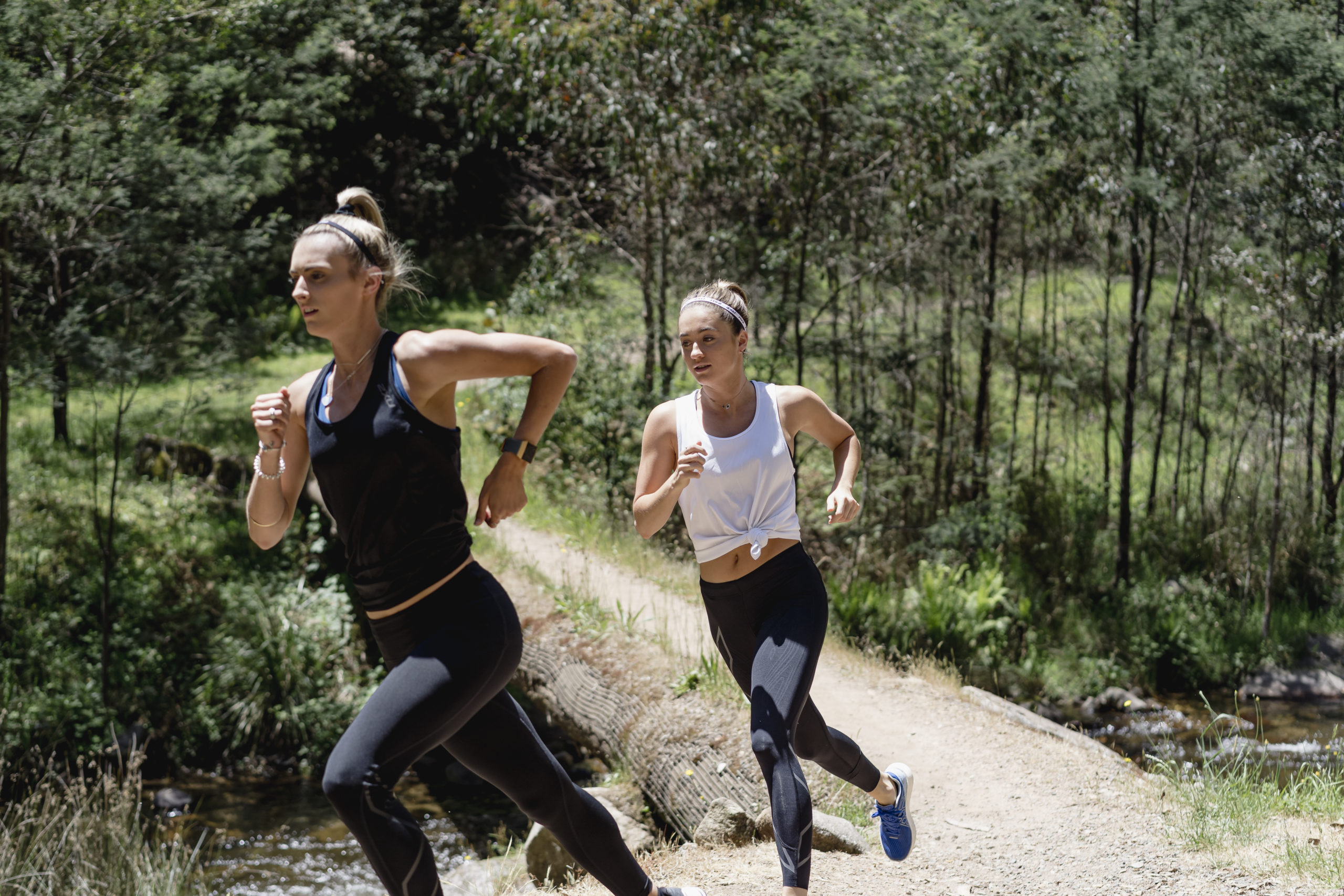2XU Athlete Q&A
Athlete – Tayla-Paige Billington
Nationality – Australian
Events – 3000m run, 5000m run and 3000m, 5000m, 1000m Race Walks
1. What does your standard training week involve?
My standard training week involves mostly high kilometres. My Monday session is just a 45-minute recovery run, but on Tuesday I ramp things up with a high intensity track session. Then, on Wednesday I run for an hour, and on Thursday I do a threshold session. Friday is typically a rest day or a recovery jog, and on the weekend, I do a hills session on Saturday, and a long run on Sunday.
2. How do you balance your training, racing and life outside of sport?
To be honest, sometimes it can be hard to break away from your training mindset and balance time with friends and family. However, sometimes you have to take time away from the sport and relax – recovery is just as important as racing and training.
It is so important to spend time with the people who make you happy. Otherwise, you can go insane! For me, I like to watch Netflix, go to the beach or meet up with friends for lunch – just take my mind off sport for a moment in time.
3. What is your favourite 2XU garment? When do you use it and why?
My favourite 2XU garment would have to be the Refresh Recovery Compression Tights. I normally use them straight after I have done a hard and long session, and I will sleep with them on during the night as it helps freshen up my legs when they are feeling particularly tired.
4. What was your inspiration for becoming an elite runner?
If I had to say what inspired me to become the athlete I am today, it would definitely be my mum. I grew up watching my mum still racing at World Championships, so athletics has long been a huge part of my life. Since I was a young girl, I knew I wanted to succeed in my athletics and become someone. Growing up I was quite competitive. Every race my mum did at the same age, I wanted to beat her best time.
5. Do you have a career highlight so far? Why did that moment mean so much to you?
My personal highlight would have to be when I won the World Junior Trial in Perth and found out that I was an automatic qualifier to go to the World Juniors which was being held in Poland.
This was so special to me because six months prior to this, I was battling a really bad injury. I wasn’t sure if I would be able to race that season at all, let alone qualify for World Juniors. All the hard work, sweat and tears paid off, and it was a really special moment for me, my family and my coach.
6. During these uncertain times, there will be many runners who are disappointed they cannot complete the marathon or race they had trained for.
How would you suggest runners retain fitness, especially those who had almost completed their marathon training, and will need to do it again in the future?
It’s a really tough situation. We haven’t really had anything like this before, so it’s hard to know the best way forward. My number one piece of advice would be to keep powering on with what they are doing and listen to your body. Keep trying to get stronger and work on your mindset – this can be so powerful.
I would also suggest not to beat yourself up about it – there is always going to be another race, another finish line to chase. Everyone is in the same situation, and everyone will be navigating this together. When we all get through this, there will be a point in time where everyone is going to be on a level playing field. So, just focus on yourself and enjoy it.
7. How do you cope when something doesn’t go to plan?
Sometimes you win, and sometimes you lose. That’s just life, and it’s important to be okay when things don’t go your way. During a particularly hard race, I usually look at what happened and ask myself what I could have done to change that – was there something I didn’t execute properly, or did I just not perform well on that day.
However, it’s so important to not beat yourself up about it as sometimes it’s just not your day. At the end of the day, understanding and accepting both the good and the bad is all part of being an athlete.
8. What do you listen to or think about when on a long run?
Usually, I am quite lucky to be joined by my training partner or coach on my long runs, so we typically chat along the way. Having someone run right by your side is so motivating and makes the time fly by.
9. What’s your treat after completing a hard training session?
To be honest, every hard session is different. However, my body always craves sugar after I have depleted it completely. I have a big soft spot for chocolate, so I normally treat myself to something sweet after a hard session, depending on what my body feels like.
10. Which parts of your body struggle the most with training, and how do you protect them?
I’m quite lucky in that my body doesn’t struggle that much during training sessions, however sometimes afterwards I experience muscle soreness in my legs. I keep on top of this with regular physio treatments, ensuring I am reducing any niggles and keeping my body strong to avoid injury. I also like to wear compression tights both during and after a session if my legs are particularly sore.
11. How do you motivate yourself to train on those tough days or early-morning runs?
My mindset is that you’re always going to have your ups and downs and sometimes you will find yourself struggling with motivation. The best thing you can do in these situations is just get out there and get it done. You’ll not only feel ten times better afterwards, but it will help you in the long run. It’s the days that you don’t feel like doing anything that end up being the most important, and this is one of my strongest motivators. You might be feeling down and struggling with motivation today, but you will be stronger for doing it.
I also like to find something that I love or look forward to and use that as my motivation. It may seem funny, but as I mentioned, my thing is chocolate. I tell myself “If you just get through this session, then you can have that chocolate that you have been thinking about all day”.
12. What mental techniques do you use during a race to get you to the finish line when you have almost reached the point of burn out?
When things start to feel tough, I remind myself why I am here. I know I can do it, so I tell myself that things will get easier if I just hang in there, and all of the blood, sweat and tears will pay off. As soon as you let any of those negative thoughts in, your whole mindset can be affected.
One of my big drivers is to never give up, no matter how sore I am starting to feel, and I get through this by visualising myself crossing that finish line. By keeping the mind positive, imagining yourself on the other side and feeling those post-race emotions, you will keep your mind in the perfect position to lead your body.

